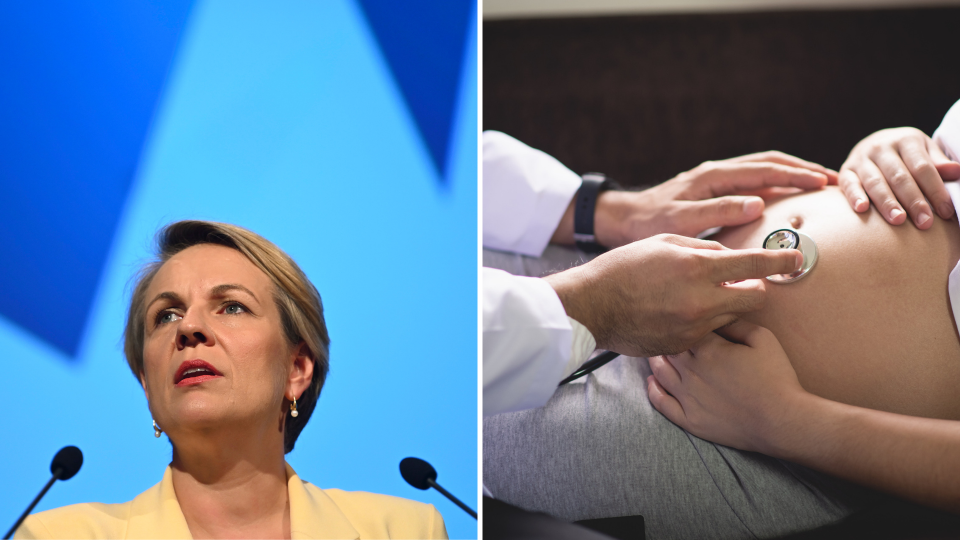Labor promises wider access to abortions

Labor has unveiled a suite of reforms on women’s reproductive health services to make them more accessible and affordable.
If elected in the upcoming federal election, Labor will see to it that Commonwealth State hospital funding agreements would be used to ensure termination services to be widely provided across public hospitals.
Most significantly, Labor is promising to have public hospitals throughout Australia consistently provide free abortion services, along with a number of other proposals that work to remove barriers to terminations, improve access to contraception and support doctors.
At present, women who want termination services are often turned away at public hospitals and don’t have access or can’t afford going to a private clinic, shadow minister for women Tanya Pilbersek said on Wednesday.
“In some cases women have been forced to travel hundreds of kilometres or go interstate to get the care they need,” she said.
“Forcing a woman to travel long distances or interstate to access surgical services can dramatically increase the emotional and financial burden.”
In a nutshell, what exactly is Labor promising?
Labor’s plan includes:
Establishing an expectation for termination services to be provided consistently in public hospitals under commonwealth-state hospital funding agreements
Reviewing the Medicare rebate for the termination drug (RU486) to make it more affordable
Funding a national telephone referral service to link women to safe, credentialed providers of termination services
Establishing a new Tasmanian Reproductive Health Hub so Tasmanian women aren’t forced to travel for their termination due to a lack of local services
Progressing the decriminalisation of abortion across Australia
To have the Therapeutic Goods Administration advise on options to improve access to the contraceptive pill, including three-year prescriptions
Reviewing the Medicare rebate for long-acting removable contraceptives
Fund an online community of practice for doctors to receive peer support, advice and connections with pharmacists and other service providers regarding providing medical terminations
Restore funding to the Australian Women’s Health Network
So what abortion laws do we have in place at the moment?
At present, abortions are legal to varying degrees depending on which state or territory you live in.
New South Wales: Abortions are a crime, unless a doctor deems that a woman’s physical or mental health is in danger.
Queensland: Abortions are legal up to 22 weeks of gestation. They are still legal after 22 weeks, but require two doctors’ approval.
Victoria: Legal up to 24 weeks, and legal after 24 weeks with two doctors’ approval.
South Australia: Terminations are legal up to 28 weeks’ gestation – but only if two doctors agree that a woman’s physical or mental health is endangered by the pregnancy or there is a risk of serious foetal abnormality. Additionally, abortions may only take place in a hospital.
ACT: With the most relaxed laws, abortions in the ACT are legal and can be performed by medical practitioners including nurses.
Western Australia: Terminations are legal but very restricted after 20 weeks, as well as particular restrictions for pregnant girls under 16 years of age. If an abortion is to be performed after 20 weeks, two medical practitioners from a panel of six must agree that the mother or unborn baby has a severe medical condition. A pregnant girl under 16 must be given the opportunity for counselling before the abortion and must have the consent of at least one parent.
Northern Territory: Abortions are legal up to 14 weeks with one doctor’s approval, and legal at 14-23 weeks with the approval of a second doctor. Abortions are illegal after 23 weeks unless it is to save the pregnant woman’s life.
Tasmania: Legal up to 16 weeks. After 16 weeks’ gestation, two doctors’ approval is required.
Make your money work with Yahoo Finance’s daily newsletter. Sign up here and stay on top of the latest money, news and tech news.
Now read: Australia’s domestic violence epidemic looks set to become key election issue
Now read: Labor to dedicate $60 million to domestic violence victims
Now read: NSW’s $90 billion spend on this sector will see a jobs boom

 Yahoo Finance
Yahoo Finance 
